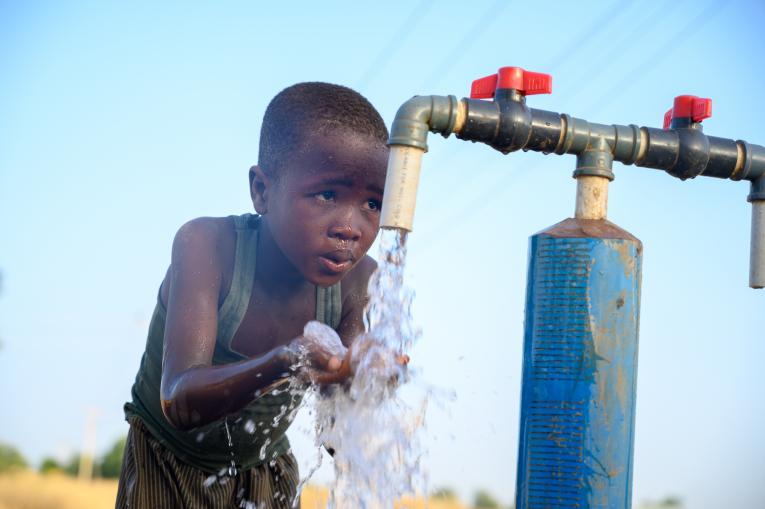The Federal Government through the Ministry of Water Resources in partnership with the World Health Organisation (WHO), has moved to track progress toward improving access to water and sanitation services in line with the Sustainable Development Goals (SDG) The Trumpet gathered.
Director, Water Quality Control and Sanitation in the Ministry, Mr Emmanuel Awe disclosed this at a ‘Global Analysis and Assessment of Sanitation and Drinking-Water (GLAAS) Report Validation meeting’.
According to him, the event has provided an opportunity for stakeholders’ consultation and representation for effective governance in scaling up water and sanitation services.
He urged stakeholders to sustain the progress, adding that with activities from the `Clean Nigeria, Use the Toilet campaign’, more local councils are now recording open defecation-free status,
Awe noted that the GLAAS is a UN-Water initiative implemented by the WHO, that responds to information needed to address gaps in the use of sanitation and drinking water services.
Read Also: ASUP threatens to shut down polytechnics nationwide
He said: “GLAAS is in the Water, Sanitation and Hygiene (WASH) sector on governance, monitoring, finance, and human resources, it will help us to know where we are as a country.”
The director, who was represented by a deputy director in the ministry, Mrs Elizabeth Ugoh, noted that plans had already begun to see how to close these gaps toward meeting the needed parameters for meeting the water and sanitation SDGs.
He said data gathered had seen gaps in urban sanitation services, saying having the right policy in place would go a long way in reversing these trends.
In his remarks, the Country Representative of WHO in Nigeria, Dr Walter Mulombo, represented by National Consultant, Public Health & Environment, Dr Edwin Isotu-Edeh, described the UN-GLASS report as an important strategic document, which provides an overall assessment of WASH systems in Nigeria.
He said understanding bottlenecks and enablers of WASH system in COVID-19 era as revealed by the assessment, is key to accelerating the actualisation of both SDG 6 and addressing determinants of health in Nigeria.
The latest GLAAS report, published in 2019, builds on the GLAAS 2017 report, where finance continues to be a major theme of the report.





